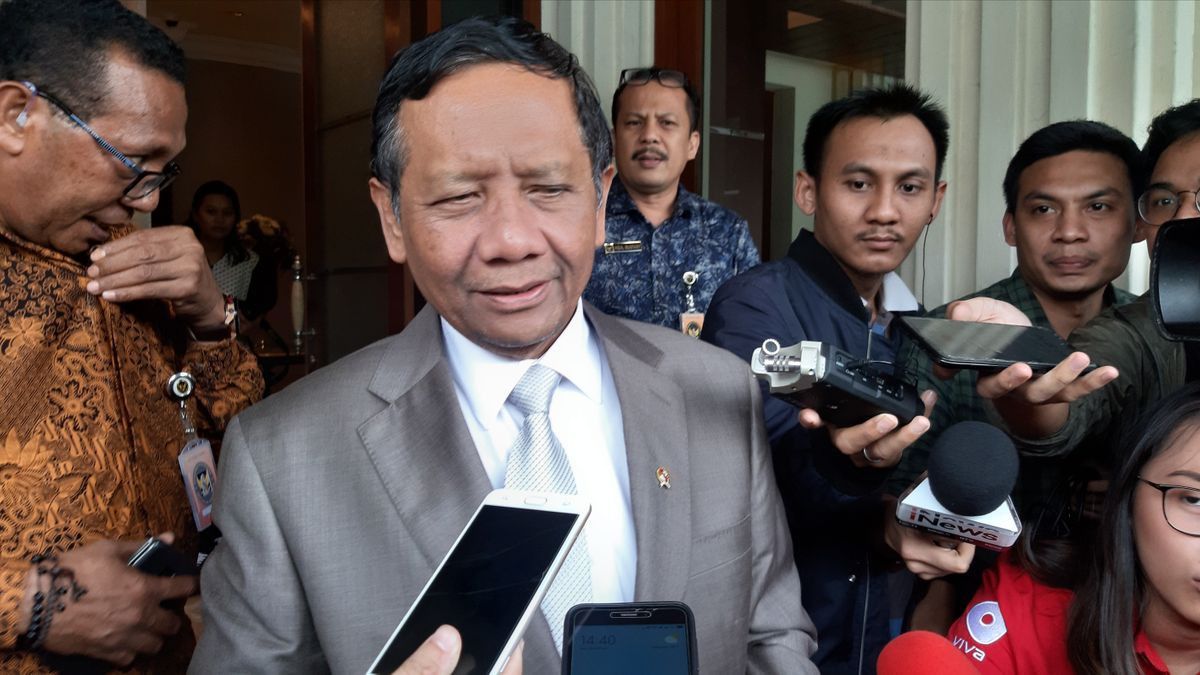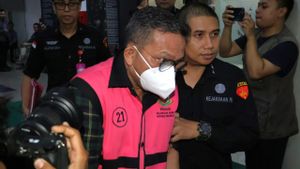JAKARTA - The government has decided not to repatriate former Indonesian citizens of ISIS. Even so, the government still opens the opportunity to accept the return of Indonesian citizens who no longer have parents or are orphans and are now living in camps in the Middle East.
According to the Coordinating Minister for Political, Legal and Security (Menkopolhukam) Mahfud MD the opportunity is open considering that currently the team led by the National Counterterrorism Agency (BNPT) is identifying children under 10 years of age.
Mahfud did not explain in detail how the ex-ISIS Indonesian citizens were repatriated. According to him, this discourse is still in the initial consideration stage.
"The principle is that children under 10 years of age who are orphaned will be sent home. That is the official policy. Regarding when and where, the work is closed and then there are things that cannot be announced to the public," Mahfud said in the office. Kemenkopolhukam, Jalan Medan Merdeka Barat, Central Jakarta, Monday, February 24.
According to Mahfud, the process of data collection and identification was carried out by BNPT and his team by checking whether there were indeed any children of ex-ISIS Indonesian citizens who were orphans and were in the Al Roj, Al Hol, and Ainisa camps. It is known that this camp is under three authority powers, namely SDF (Syrian democratic forces), the Syrian government, and the government of Kurdistan.
"We are only at the inventory stage, is it true that anyone is at the age of 10? If so, which camp or country is it. This is all still in the identification process carried out by BNPT, carried out by a joint team," he explained. former Chief Justice of the Constitutional Court (MK).
Meanwhile, for ex-ISIS Indonesian citizens who are already adults, Mahfud said data collection would also be carried out and the results obtained would later be submitted to the Ministry of Law and Human Rights (Kemenkumham) to block passports.
"Those who have been identified by name, address and so on, since when did they join ISIS, it has now begun to be deposited with the Ministry of Law and Human Rights for their passports to be blocked," he said, adding that with the blocking of the passport, it means that Indonesian citizens who are ex-ISIS adults cannot enter Indonesia.
The government's attitude that still wants to repatriate this ex-ISIS child who is orphaned is appreciated and is considered important to do. Terrorism observer Harits Abu Ulya, children under the age of 10 are considered to have the opportunity and right to live a better life in the future. So, this pick-up needs to be done and the country must be present to save their future.
In addition to picking up, according to him, the government has an obligation to re-educate these children so that they have a new mindset after they return from the camp or live in a conflict area.
"BNPT or related institutions can accommodate them in one place. They need to re-educate them with the best and appropriate substance and approach according to their age," Harits said when contacted by VOI via text message, Tuesday, February 25.
The re-education process is meant to be put in a special educational institution and a curriculum that changes their views, and is fostered by teachers who understand the psychological condition of these children.
The teachers provided, according to Harits, must provide insight into the extreme understanding they have received from families exposed to the understanding of ISIS and of course not be affiliated with that group. In addition, environmental factors must also be considered when the re-education process occurs.
"The environment where they (ex-ISIS Indonesian citizens) educate them must also be very conducive, safe from people who intend to have a negative influence," he said.
After the re-education process is complete, the next step is that the government does not immediately release them. There must be mentoring and monitoring for these children when they are ready to return to the community. "This is the process of deradicalization and re-integration into the Republic of Indonesia," he concluded.
The English, Chinese, Japanese, Arabic, and French versions are automatically generated by the AI. So there may still be inaccuracies in translating, please always see Indonesian as our main language. (system supported by DigitalSiber.id)












